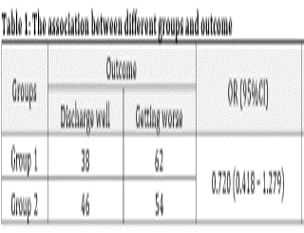Abstract
Antimicrobial resistance continues to increase among bacteria which cause disease in both community and hospital setting. Antimicrobial stewardship (AMS) is a global initiative it includes the 4 Ds approach (appropriate selection of the drug, dosage, duration of administration and de-escalation of antimicrobial therapy). We aim to have a microbiological profile and to assess the uses of antibiotics in critically ill patients in a critical care unit. This was cross-sectional study of 200 Intensive Care Unit patients in Medical City Teaching Hospital from June to August of 2017. The patients divided into two groups, 100 for each, the 1st without, the 2nd with biologic profile comparing both data. We included 200 (148 males and 52 females). The two most common microorganisms isolated by sample cultures are Klebsiella pneumonia and Pseudomonas aeruginosa (54%). Patient fate includes improvement and discharges well in 38% and death in 46%. In the 1st group, 28% the antibiotics selection completely matched with culture and sensitivity results while 20% of these cases did not match, while in the second group the completely matching was 61% and the non-matching reduced to 14%. Klebsiella pneumonia is the most common microorganism, followed by Pseudomonas aeruginosa. The right selections of empirical antibiotics play an important role in clinical outcome.
Full text article
Authors

This work is licensed under a Creative Commons Attribution-NonCommercial-NoDerivatives 4.0 International License.

